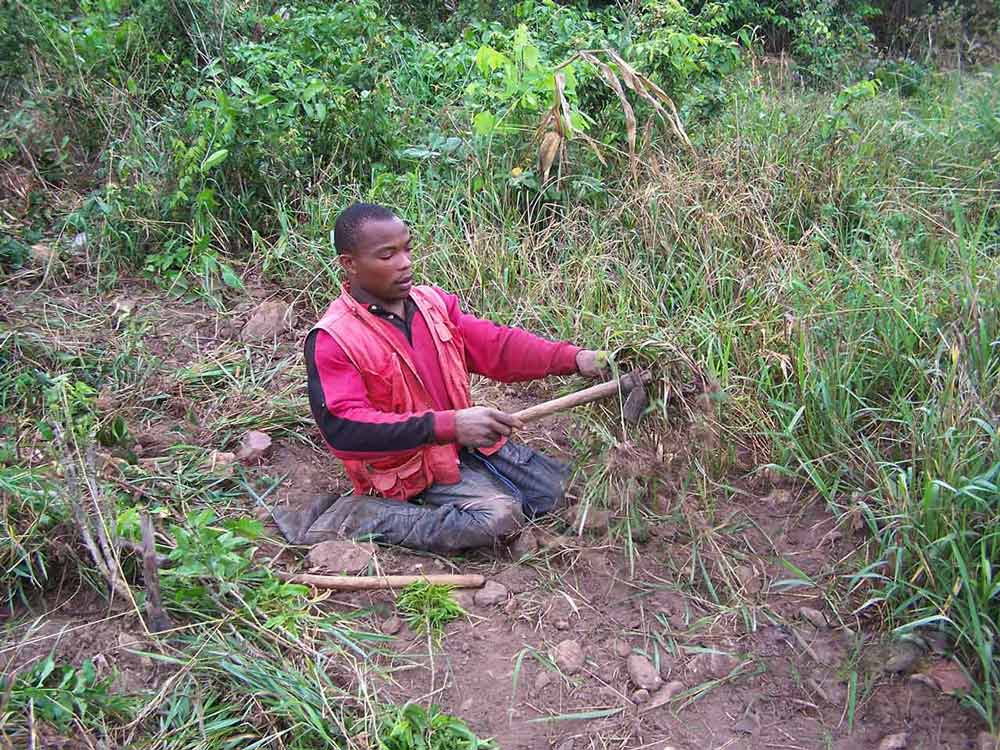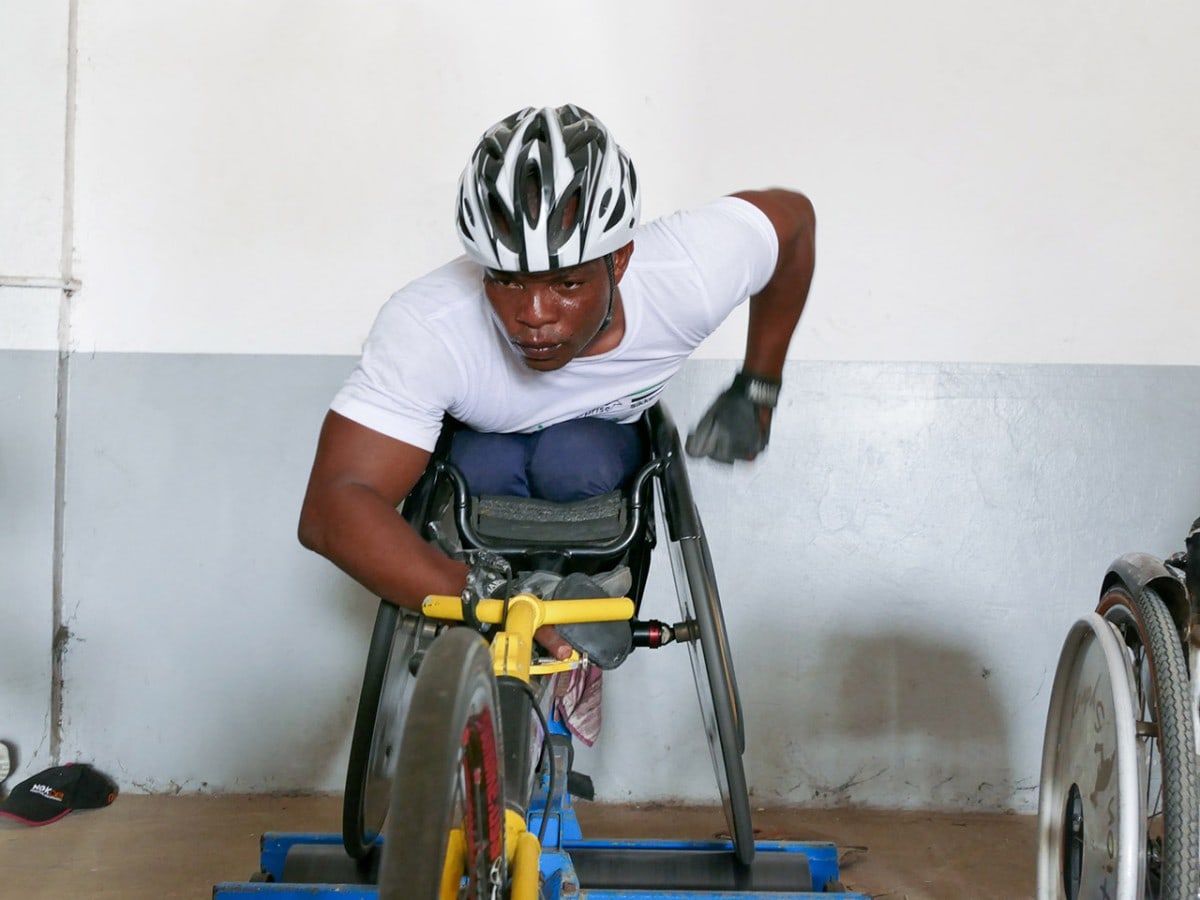On the fringes of Ghanian society, Maclean Atsu Dzidzienyo struggled daily to survive as a boy because of his disabilities. But Maclean Atsu Dzidzienyo persisted. A wheelchar and, eventually, sport changed his life: Today, as a succcessful Paralympian, he advocates for persons with disabilities to be accepted as an essential part of society.
Maclean Atsu Dzidzienyo was nine years old when his life changed from one day to the next. Due to severe headaches, his parents took him to the local hospital. “To this day, I don´t know what exactly happend then. Later, all I heard was that the doctor gave me an injection in the wrong place.”
The next day, the boy could no longer feel his legs, no longer stand nor walk. And this was in a poor neighboorhood in Ghana’s capital Accra. His parents had four more children to care for, and they could barely make ends meet anyway.
For a son who can no longer feel and move his legs, there was no place in a society that stigmatizes disabilities and where many parents hide or even kill children with disabilities. Though Maclean stays alive, his mother abandons the family after this stroke of fate. “What was she supposed to do?” asks Maclean today, nearly 30 years later. “The neighbours said that she was cursed.”
Fighting his way through on his own
At least his father let him have a roof over his head, but that was all. At the age of nine, Maclean was completely left on his own. He crawled through streets on his hands, and set traps in the bushes – he had learned to hunt from his father in his early youth.
With homemade snares, he caught small rodents, cats, and squirrels, which he sold at the market. That’s how he made ends meet, to some extent. “Life back then was hard, really hard”, recalls Maclean those days when he barely earned enough to pay his school fees.
Without education he has no chance in this world, the boy knew. Over and over again, he came across people who support him and at some point – by which time he was already in senior high school – organized a wheelchair. Also with their help, Maclean was able to finish school with a university entrance qualification.

Maclean in 2004 © GIZ / Maclean Dzidzienyo
Athlet, businessman, activist
However, Maclean did not give up hunting for a long time and he was still moving on his hands. This was also the case on the day he met Elvis Kusi Alipui. Elvis is an activist who advocates for the rights of persons with disabilities. He is a sports enthusiast who gave Maclean access to the world of disability sports.
Basketball was Maclean’s first discipline – he made it into the selection for the Paralympics. Next came the 1.500-meter races and finally the supreme distance: the marathon. Maclean became an idol in Ghana and an advocate for persons with disabilities.
“Others see that there is more for people with disabilities than begging for alms on the street. I can inspire them”, says the five-time gold medal winner, who is not only making a name for himself in basketball and the marathon. He is also the first Ghanian ever to participate in the prestigious Wimbledon tennis tournament.
“The sport saved me”, Maclean says. But it’s not just the sport – it’s mainly himself who never gives up and pursues his goals. Also, regarding his professional career, Maclean went from being a hunter to a very successful breeder. He can make a reasonable living from selling the agoutis, which are very popular on Ghana’s menus – until buisness collapsed due to Covid-19, because rodents, among others, were blamed for spreading the virus.

Maclean trains in the catacombs of the Accra Sports Stadium © GIZ / Felix Lohmaier
Make the world fully accessible – everywhere
At the beginning of the pandemic, Maclean had already completed training as an accountant, but he was unable to find a paid job. It’s the same for many persons with disabilities. “I know a lot of people who are looking for jobs and are really well qualified,” he says. “But the can’t get employment.”
Partly because of the dismissive attitude towards persons with disabilities, Maclean explains. On the other hand, it is also because the infrastructure in Ghana is not designed accordingly: Hardly any office or building in Ghana is fully accessible – so therefore they are not accessible for people in wheelchairs.
Also, public transport is not oriented towards persons with disabilities, and even taxi drivers often do not pick them up. The condition of the streets with countless potholes and missing sidewalks is already a major safety risk for persons without disabilities. For persons with disabilities, the inadequate infrastructure is therefore often an insurmountable obstacle.
Maclean volunteers with “Go get dem“, an organisation that supports athletes with disabilities – and works to improve their lives at all levels. Slowly, attitudes toward persons with disabilities in Ghana are changing, Maclean says, with ramps to stores and offices becoming more common.
“But of course, that’s not enough!”. If he had the power, this is where he would like to start, says the athelete, businesman, and activist. He would ensure participation in all areas of society for persons with disabilities – not just in sports, but everywhere. That is true inclusion.